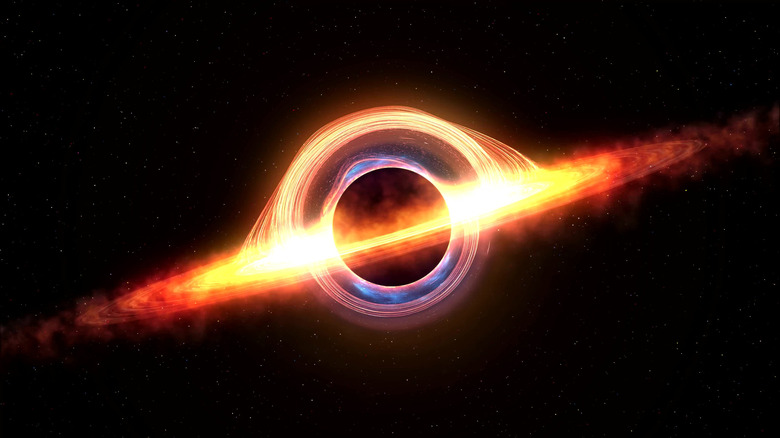Scientists Spot Supermassive Black Hole Savoring Its Last Meal
Scientists have spotted a slow-digesting black hole that is taking its time eating its last meal. The black hole in question was discovered during a tidal disruption event (TDE) back in 2018, and is known as AT2018fyk. Based on all the readings that NASA's Chandra X-ray telescope has taken, too, it seems the black hole is really savoring its last meal.
If that seems a little silly to talk about, well, let's break down a few things we know about black holes. Typically when a black hole sucks up a star—or some other celestial object—it does so by grabbing onto it with its gravitational pull. This pulls the object into the black hole, causing it to be digested. However, in AT2018fyk's case, the black hole appears to be slowly taking bites of its meal as it passes it every few years.
The researchers noticed the slow-digesting black hole when a luminosity spike drew their attention back to the event sometime after the original TDE. When this happened, they started crunching the numbers, and estimated that the black hole would pass its meal again in August of 2023. So, the researchers booked time with Chandra and waited. On August 14, that waiting paid off.
While observing the black hole, the researchers noticed a significant dimming of the emissions from the celestial object. This meant that the star was either finally torn apart—something we'll be able to confirm in a few years—or the black hole pulled off a bit more of it.
It's a very interesting discovery and one that continues to change what we know about black holes entirely. This isn't exactly surprising, as our understanding of the cosmos is constantly changing, especially as powerful observatories like the James Webb space telescope continue to peer deeper into the history of our universe.
Still, learning that slow-digesting black holes exist is an exciting proposition that will undoubtedly have scientists looking deeper at any future TDEs we observe. For now, though, we'll have to wait to see if AT2018fyk has finished its meal or if it's coming around to take another bite.
